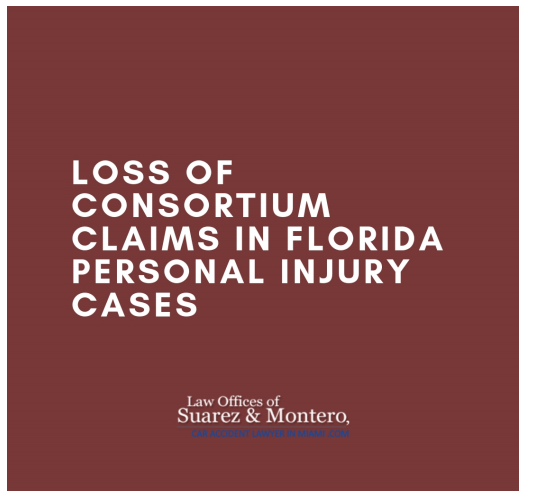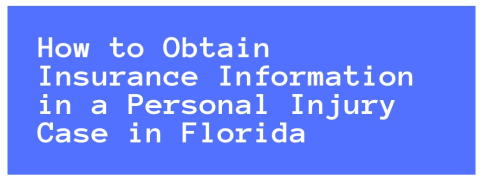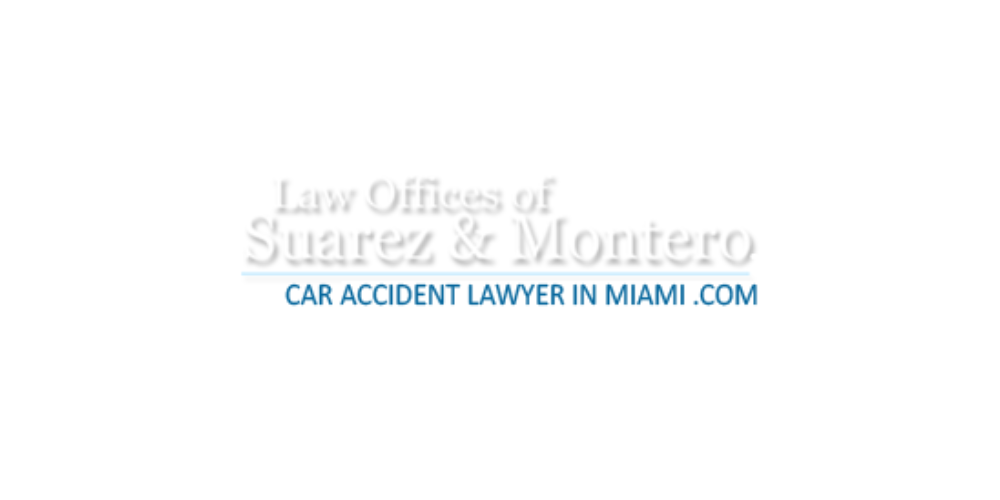
Loss of Consortium Claims in Florida Personal Injury Cases
A loss of consortium claim is the claim of the spouse who does not suffer physical injury in an accident. Under the loss-of-consortium tort, the plaintiff may recover damages for the loss of the companionship and fellowship of a husband or wife, and the right of each to the company, cooperation and aid of the other, in every conjugal relation. A cause of action for loss of consortium for injuries to a spouse is abated on the spouse’s death. In the context of a claim of loss of consortium, the term “consortium” consists of that affection, solace, comfort, companionship, conjugal life, fellowship, society and assistance so necessary to a successful marriage. A loss of consortium claim is based on the implied rights of each spouse to have a legal right to be with the other spouse. Loss of consortium is a direct injury to the spouse of the injured married partner and must be pleaded separately by the spouse who has lost the consortium, even though it is derivative in the sense of being caused by injury to the spouse.
When a jury finds that one spouse has sustained injuries, as a result of the negligence of a third party, an award of damages to the other spouse for loss of consortium is not automatic; instead, in order to prevail on a claim for loss of consortium, the claiming spouse must present competent testimony concerning the impact that the incident has had on the marital relationship. Thus, to prevail on a claim for loss of consortium, a spouse must demonstrate the loss of the companionship and fellowship of husband and wife, and the right of each to the company, cooperation and aid of the other in every conjugal relation. Where the spouse claiming loss of consortium presents evidence that is substantial, undisputed and unrebutted, concerning the impact the injury had on the marital relationship, the spouse is entitled to receive at least nominal damages. Where sufficient undisputed evidence is presented on a consortium claim that would require an award of at least nominal damages, a zero verdict is inadequate as a matter of law.
Where the loss is of a noneconomic nature, the estimation of compensatory damages is inherently arduous to calculate. This is because no formula can determine the value of such a loss. For this reason, great deference is given to the jury’s estimation of the monetary value of the plaintiff’s mental and emotional pain and suffering. The concept of damages for a loss of consortium claim is inevitably a vague and subjective one, left largely to the discretion of the jury; such damages are intended to compensate the spouse of an injured person for past and future loss of such intangibles as love, sex, companionship, society, comfort and solace, and for help in performing one’s tasks about the household. Therefore, damages may be awarded prospectively for future loss of consortium. The right of a person to seek damages for the loss of the services of a spouse is not limited to those services that customarily arise out of the marriage relationship, as long as there is no double recovery. Evidence of a deceased spouse’s earnings outside of the household is properly admissible in the surviving spouse’s wrongful death action. An emotional injury, no matter how deeply felt, does not give rise to a loss-of-consortium claim; instead, the existence of the legal relationship between the claimant and the injured party fosters the claim. Thus, a party must be legally married to the injured person at the time of the injury, in order to assert a claim for loss of consortium; where an accident occurs at a time when the relationship of husband and wife does not exist, a person does not acquire the right to claim a loss of consortium by a subsequent marriage to the injured party. The rationale behind this rule is that a person may not marry into a cause of action, and that a line must be drawn somewhere as to liability. A person who purports to be an injured person’s common law spouse has no right, under Florida law, to bring a claim for loss of consortium arising from that person’s injuries because there is no legal marriage. Similarly, the same-sex partner of an injured person may not bring a claim for loss of consortium, even though the relationship between the partner and the injured person is committed, exclusive and intimate; the fact that such persons are prohibited by law from marrying does not warrant creation of an exception to the rule requiring the existence of a legal marriage.
We are here to help! Call us today to schedule your free case evaluation.
If your auto insurance company denied your personal injury claim, you may be able to file a lawsuit to obtain the compensation necessary to pay for your medical treatment and expenses. At the law offices of Suarez & Montero Car Accident Lawyers, an attorney can review your policy and the written reason for your denial to ensure that you have a valid claim. After a car accident, it is incredibly important for you to contact a Florida car accident attorney. The Law Offices of Suarez & Montero represents accident victims injured in various types of accidents. Our skillful attorneys are genuinely committed to our clients. We will fight to make sure that you get the maximum amount of compensation owed to you. Let us help you get the medical care you need and fight to make sure you are compensated for your injuries! Our attorneys are ready to provide proven legal representation in pursuing your claim and stand ready to protect your rights. We are available 24/7 to give you a free, no risk case consultation.
We serve clients throughout Florida including those in the following areas:
Miami-Dade: Aventura, Coral Gables, Doral, Fontainebleau, Hialeah, Homestead, Kendall, Miami, Miami Beach, Miami Lakes, North Miami, Tamiami, and Westchester.
Broward: Fort Lauderdale, Hallandale Beach, Hollywood, Pembroke Pines, and Weston; and Palm Beach County including Boca Raton, Lake Worth, and West Palm Beach.
The Law Offices of Suarez & Montero Car Accident Attorneys represents accident victims injured in various types of accidents including:
• Distracted Driving Accident Lawyers
•Drunk Driving Accidents
• T-Bone Car Accidents
• Road Rage Car Accidents
• Head-on Collisions
• Rollover Accidents
• Rear-end Car Accidents
• Left Turn Accidents
• Failure to Yield Car Accidents
• Sideswipe Accidents
• Merging Accidents
• Lane Change Accidents
• Construction Zone Car Accidents
• Truck Accidents
• Semi-Truck Accidents
• Bicycle Accidents
• Train Accidents
• Pedestrian Accidents
• Boating Accidents





